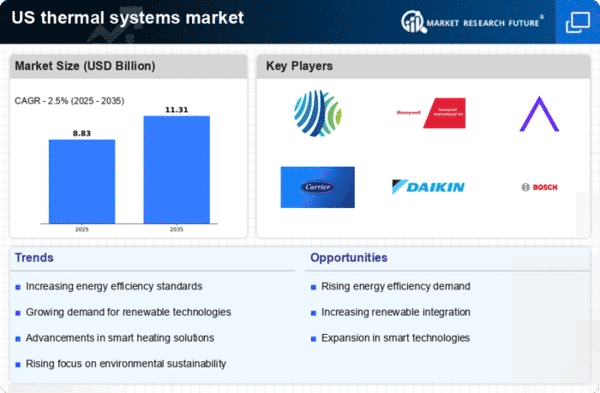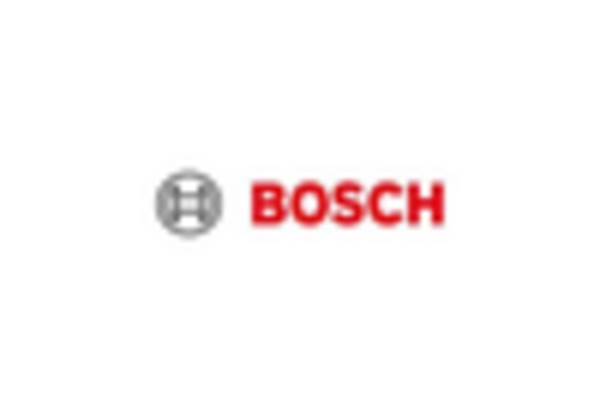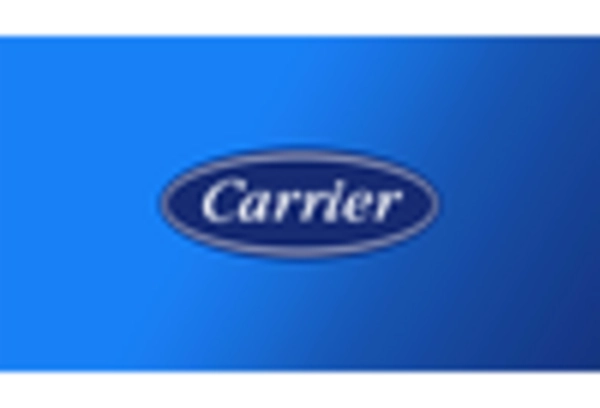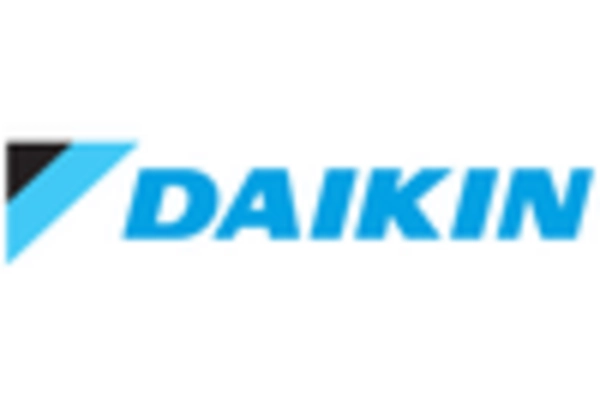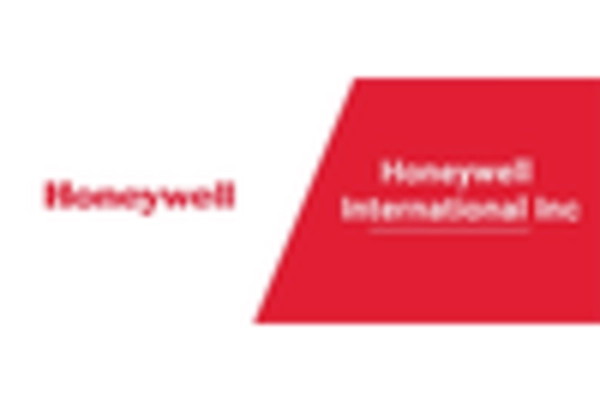Rising Demand for Sustainable Solutions
The thermal systems market is experiencing a notable shift towards sustainable solutions, driven by increasing environmental awareness among consumers and businesses. This trend is reflected in the growing adoption of energy-efficient heating and cooling systems, which are designed to minimize energy consumption and reduce greenhouse gas emissions. According to recent data, the market for energy-efficient thermal systems is projected to grow at a CAGR of approximately 8% over the next five years. This rising demand for sustainable solutions is compelling manufacturers to innovate and develop products that align with eco-friendly practices, thereby enhancing their competitive edge in the thermal systems market.
Regulatory Support for Energy Efficiency
Government regulations aimed at promoting energy efficiency are significantly influencing the thermal systems market. Initiatives such as tax incentives and rebates for energy-efficient installations encourage both residential and commercial sectors to invest in advanced thermal systems. The U.S. Department of Energy has set ambitious targets for reducing energy consumption in buildings, which is likely to drive the adoption of high-efficiency thermal systems. As a result, the market is expected to witness a surge in demand for products that comply with these regulations, potentially leading to a market growth rate of around 7% annually. This regulatory support is crucial for shaping the future landscape of the thermal systems market.
Consumer Preference for Comfort and Convenience
Consumer preferences are increasingly leaning towards comfort and convenience, which is driving the thermal systems market. Homeowners and businesses are seeking advanced thermal solutions that provide consistent temperature control and enhance indoor air quality. The demand for smart home technologies, including automated heating and cooling systems, is on the rise, as these solutions offer greater control and energy savings. Market Research Future indicates that nearly 40% of consumers are willing to invest in smart thermal systems for improved comfort. This shift in consumer behavior is likely to propel the growth of the thermal systems market, as manufacturers respond to these evolving preferences with innovative products.
Technological Advancements in Thermal Management
Technological advancements are playing a pivotal role in transforming the thermal systems market. Innovations such as advanced heat exchangers, smart thermostats, and predictive maintenance technologies are enhancing the efficiency and reliability of thermal systems. These technologies not only improve performance but also reduce operational costs for end-users. The integration of IoT in thermal management systems is particularly noteworthy, as it allows for real-time monitoring and optimization of energy use. As these technologies continue to evolve, they are expected to drive a substantial increase in market penetration, with estimates suggesting a potential growth of 10% in the adoption of smart thermal systems over the next few years.
Increased Investment in Infrastructure Development
The thermal systems market is benefiting from increased investment in infrastructure development across various sectors, including residential, commercial, and industrial. As urbanization continues to rise, there is a growing need for efficient heating and cooling solutions in new buildings and retrofitting existing structures. The U.S. government has allocated significant funding for infrastructure projects, which is likely to spur demand for advanced thermal systems. This investment is expected to create opportunities for manufacturers and service providers, potentially leading to a market growth of approximately 6% in the coming years. The emphasis on modernizing infrastructure is a key driver for the thermal systems market.

